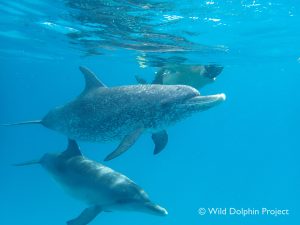
How to Help Save Marine Mammals: 11 Eco-Friendly Ways to Make a Difference
Marine mammals—like dolphins, whales, seals, and manatees—play vital roles in ocean ecosystems. But around the world, they face growing threats: plastic pollution, climate change, habitat loss, noise from ships, entanglement in fishing gear, and more. The good news? You don’t have to live by the ocean or be a marine biologist to help. Every one of us can take small, eco-friendly actions that add up to a big difference.
We’re sure you know most of these, but here are 10 practical, impactful ways you can help save marine mammals and protect our blue planet:
1. Reduce Single-Use Plastics
Plastic waste is one of the biggest threats to marine life. Dolphins and whales often mistake plastic bags for food or get entangled in debris. We’ve seen dolphins — young and old — playing with plastic at our field site. Reduce your plastic footprint by using reusable bags, water bottles, and containers. Say no to plastic straws and cutlery, and opt for eco-friendly alternatives.
2. Participate in Beach or River Cleanups
Join a local cleanup—or organize one yourself! Even if you don’t live near the coast, cleaning up local rivers, lakes, or parks prevents trash from traveling downstream to the ocean. Grab gloves and a bag, and collect litter from your nearest river, lake, or park. Invite friends or make it a fun family event. These cleanups remove harmful debris and raise awareness in your community.
3. Support Sustainable Seafood
Many marine mammals get caught as bycatch in commercial fishing operations. Look for seafood certified by organizations like the Marine Stewardship Council (MSC) or the Monterey Bay Aquarium’s Seafood Watch. Better yet, choose plant-based meals a few times a week to reduce pressure on the ocean altogether.
4. Cut Down on Carbon Emissions
Climate change is warming oceans, melting ice, and altering food webs—threatening the survival of species like polar bears, narwhals, and whales. Reduce your carbon footprint by biking or walking more, choosing energy-efficient appliances, and supporting clean energy solutions.
5. Be Whale-Wise When Boating
If you’re lucky enough to be out on the water, follow responsible boating and wildlife viewing guidelines, as well as obeying any laws regarding threatened and endangered species like manatees and North Atlantic right whales. Keep your distance, slow your speed, and never chase or crowd marine animals. Noise pollution from boat engines disrupts communication and feeding for many species.
6. Choose Reef-Safe and Ocean-Safe Products
From sunscreen to household cleaners and cosmetics, what we use can wash down drains and into waterways. Look for reef-safe sunscreens (no oxybenzone or octinoxate) and biodegradable, non-toxic cleaning products that won’t harm marine ecosystems.
7. Advocate for Marine Protection
Support legislation that protects marine habitats, limits offshore drilling, or expands marine sanctuaries. Your voice matters—reach out to local representatives or support organizations doing this work, like the Wild Dolphin Project and others.
8. Educate and Share
Talk to your kids, friends, and community about marine mammals and how they can help. The more people know, the more they care. Follow ocean-focused nonprofits — like Wild Dolphin Project — and share their posts and stories on social media to spread awareness. Learn about marine mammals around the world and the threats they face.
9. Choose Eco-Conscious Travel
Planning a vacation? Support ecotourism operators who follow ethical wildlife practices and give back to conservation efforts.
10. Donate or Volunteer
Organizations like the Wild Dolphin Project rely on donations and volunteers to continue their work researching and protecting wild dolphins. Even small donations or one-time fundraisers (like birthdays or giving circles) can go a long way in supporting marine science and conservation.
11. Turn Your Yard or Balcony Ocean-Friendly
Even inland gardens can impact ocean health. Use native plants, avoid pesticides, and create pollinator-friendly spaces. This helps reduce runoff pollution, which often ends up in waterways and oceans. Bonus: You’ll support local wildlife while helping distant marine life.
Support Wild Dolphin Project here.

